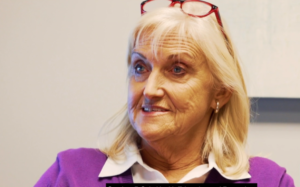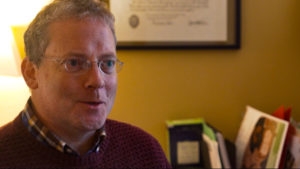Online health program prepares graduates for community advocacy
B.S. In Health Education and Promotion
Dr. Bennie Prince shares some information on the B.S. In Health Education and Promotion program.
The UA Little Rock Bachelor of Science in health education and promotion prepares students as health professionals in community health agencies, as well as business and industry wellness programs. The health education and promotion degree is available as a fully online program offered through the School of Counseling, Human Performance, and Rehabilitation (CHPR).
Dr. Bennie Prince, program coordinator, explained an 18-hour minor program of study is required as part of the 120-hour online degree.
“Currently, the School of Counseling, Human Performance and Rehabilitation offers two fully online undergraduate minors,” Prince said. “We offer health science and sport management.”
According to Prince, the health science minor is designed for students interested in health education and the sport management minor is designed for students who are interested in sports facility management, sports industry, and sports marketing.
Cultural Competence

One course Prince highlights within the program is Cultural Competence in Health Education. The course is designed to increase a student’s understanding and knowledge about individuals and groups of people as it relates to policies, practices, and attitudes. Prince said the course focuses on culturally appropriate communication, health literacy, minority health disparities and effective strategies in planning, implementing, and evaluating culturally appropriate health education programs.
“The overall objective was to design a course that includes cross-cultural differences,” Prince said.
As American classrooms become increasingly diverse, cultural competence is a key factor in enabling educators to be effective with students from cultures other than their own, according to Prince.
“Cultural Competence is a course that many of the other departments have now started referring their students take,” Prince said.
Career Opportunities
Students who complete the program will have the necessary tools for career success and advancement in a growing healthcare industry, according to Prince.
“Many of the positions in the healthcare industry require knowledge of wellness programs, smoking cessation, and stress management techniques,” Prince said.
Coupled with a minor in sports management or health and exercise science, Prince explained how students can obtain a practical, well-rounded education through her program.
“Students can use the health education side so they’re advocating for health,” Prince said. “Then they’ve got the background in health and exercise science for a career in sports facility management, sports industry, and sports marketing.”
According to Prince, changes in healthcare insurance have been instrumental in the growth of health education.
“With all of the highlight being on improving your health and advocating health programs, it has put a focus on our B.S. in health education and promotion program,” Prince said.
While the health and promotion degree ensures students will be prepared as health professionals, the goal is for students to view themselves as more than just health care professionals.
“We’re community advocates,” Prince said. “And we want our students in our classes to know they share a common bond in supporting health advocacy in the community.
The online degree program is also designed to assist the entry-level health educator in taking the National Health Education Credentialing examination.
For more information please call 501-683-7201.


